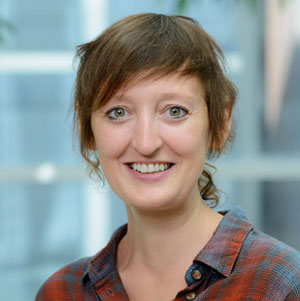22nd Radio Assembly highlights innovation, challenges and new ways of listening
25 April 2016
The 22nd Radio Assembly took place in Basel on Thursday 21 April. The annual event was opened by Nathalie Wappler – Head of Culture at Swiss Member SRF – who told 66 delegates from 33 Members in 29 countries that radio broadcasters need to prepare for the IP internet era. “New opportunities will arise in response to the new technology - we need to invest in respective technologies”
Wappler looked forward to 2025 to offer a picture of public service radio in a decade’s time.
“With the rise and rise of streaming services spoken word will be our USP in 2025 - Radio conveys credible information and background to complex topics. Radio talks to you offering company in an increasingly lonely society and radio offers connection points for interaction.”
EBU Head of Radio Graham Dixon celebrated the many achievements of Euroradio over the past 12 months including transmissions from Cuba, launching the world’s first DAB+ smartphone and forming the European Digital Radio Alliance.
“Our priorities are promoting digital transition, sustaining our classical offer whilst developing non classical music, promoting innovation and energising our non-music projects,” he told Members.
In his summary of Media department activities Media Director Jean Philip De Tender argued that “we should better advocate what public service media does – we have great brands.”
He highlighted how the EBU is working hard to reach young audience and drew attention to the recently launched Generation What Europe project that has seen 250,000 responses in its first week.
“It’s often difficult to connect with younger audiences – this project shows it’s possible.”
David Fernandez Quijada from the EBU’s Media Intelligence Service looked at new ways of listening to radio.
“Radio reached 84 percent of European citizens in 2014.” he told the delegates. “Terrestrial radio is still needed to reach wide audiences but increasingly young people are using new devices and networks to listen to radio and audio. Two percent of people are listening to podcasts – in quantitative terms the audiences are not big – but they might be interesting for other reasons – to reach young audiences for example.”
In a panel on “Hard Choices -your most difficult decision of the year” Directors from NRK, Radio France, VRT and the BBC debated whether they would make the same judgement calls on a variety of challenges including moving a presenter from terrestrial to digital only, how to schedule networks following a terrorist attack and doing distribution deals with streaming services such as Spotify.
BBC Director of Radio Helen Boaden said, “If you give unique access to people to be gatekeepers of your content for short term monetary gains it’s the road to long term decline.”
Els van de Sijpe, Media Manager Radio at VRT in Belgium highlighted how the Brussels bombings showed the importance of radio during trying times
“51 percent of people in Belgium who discovered the news via the media learned about the attacks on radio,” she said.
In the keynote of the day Mezen Dannawi, a senior advisor to Dutch Member NPO, talked about how connected devices are now providing the opportunity for the convergence of media. How do organisations cope with the impact of new technology on information and music provision?
“People are now less patient with waiting for content which they want,” he said. “Spotify and Apple are moving into the traditional radio areas, and towards a highly competitive position with each other.”
He emphasised that radio broadcasters needed to supplement what people can have from other providers, supporting analysis and information. It was important to build on the trust which radio has and proposed the possibility of a classical music on demand service, pooling our copyright acquisition.
In a panel on Innovation Paula Cordeiro from RTP Portugal told delegates to not work in a vacuum, but listen to real potential audience members and what they are talking about.
The Director General of Radio Romania Ovidio Miculescu emphasised the centrality of great content, and argued that PSM should build the future on what we know best, and around our core competences.
He talked about the challenge of providing material for different ethnic groups and languages, while preserving the integrity of the resulting channels. He said through “an imaginative allocation of frequencies. Radio Romania has been able to better serve audiences using spectrum in an innovative way which has seen an increase in listenership.”
Thomas Reinke, Programme Director of WDR’s Funkhaus Europa, presented Funkhaus Europa Refugee Radio which has traditionally reached out to guest workers and has now moved on to find ways that radio could welcome refugees and provide material which will help integration. He told delegates that material is on FM and digital radio, but also available on smartphones and on demand. In a throwback to analogue days, the station also a produces a pdf to hang in refugee homes.
The Assembly concluded with the election of Józef Wacnik from Polish Radio onto the Radio Committee. Józef is the Director of the Centre for Digital Radio Development and previously held roles as chief engineer in Polskie Radio’s office of technology and multimedia production.
Relevant links and documents
Contact




